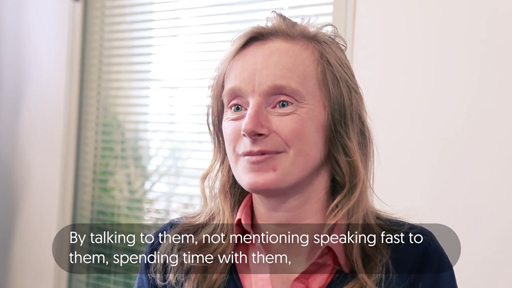1.1 Learning disabilities and communication
Someone with a learning disability is more likely than other people to have impaired mental capacity for decision making in at least some areas of their lives. However, the legal and age-related presumption of capacity still applies. Assessors of mental capacity need to approach every case with an open mind, although it would be patronising and hurtful to parents and carers for assessors to start with exaggerated and overly-optimistic assumptions of mental capacity where clearly the person has profound mental impairment.
Whatever the level of impairment, establishing the best method for communicating is essential for maximising the possibility of hearing the person’s views, both verbally (if possible) and non-verbally.
Activity 2 Communication and learning disability
1. Watch the video below in which people with learning disabilities give their own advice on how to communicate better with them. The video is produced by CHANGE, a human rights organisation led by disabled people.

Transcript: Communicating with people who have learning disabilities
2. Now look at one of the resources below and in the text box below, note the non-verbal ways in which communication may be enhanced.
- Mencap’s guide to Communicating with people with a learning disability [Tip: hold Ctrl and click a link to open it in a new tab. (Hide tip)]
- Scope’s Resources to support children with communication impairments
Comment
Clearly, communicating effectively with someone whose mental capacity you are assessing is essential. It is important to have a respectful, non-patronising and facilitating approach, to take time, to speak at a speed that matches the person’s ability to understand, and, above all, be prepared to use a range of different methods.
